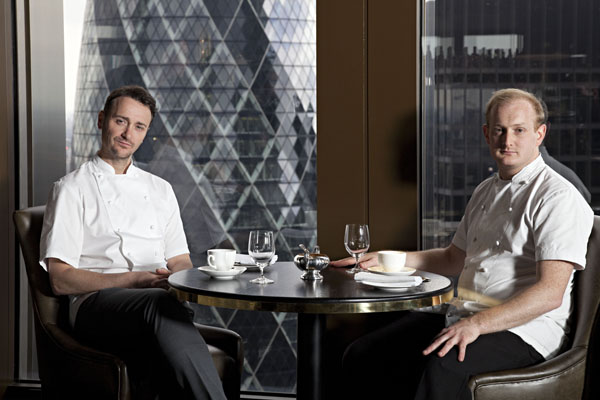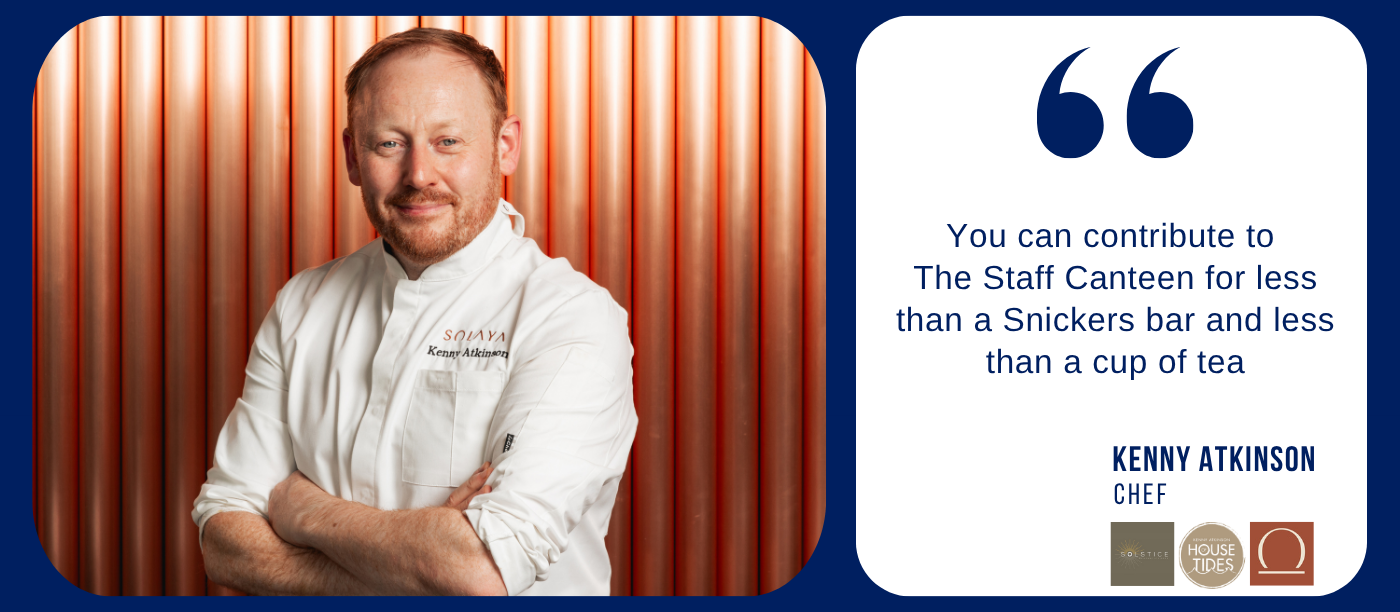'I just wish more young chefs would only ever be about being a good cook. This industry would be much better for it'

What is the purpose of building a restaurant empire?
Glory, fame and wealth aside, is it important to leave a mark on the culinary world? Do industry leaders owe it to the people who help them build their success to give them something back?
Jason Atherton didn't set out to become a titan of the restaurant world. All he wanted was to be a great chef.
What makes a great chef?
"I don't mean to sound like a Hovis advert," he said. "But I just wish more young chefs would only ever be about being a good cook. This industry would be much better for it."
"For everyone today it's 'how many likes did you get, I saw this on Instagram.'"
For him, chefs need to dial back to their old ethos: "even when I went to work in France at places like l'Auberge de L'Ill, everybody just wanted to be a good cook - and that's what builds an amazing brigade."
Jason Atherton honed his skills at the side of industry legends; he worked for Pierre Koffmann, Nico Ladenis and spent a decade alongside Gordon Ramsay, picking up invaluable skills along the way.
The reason he spent as long as he did with Gordon, he explained, was because he drove him hard to become a better chef.
"When he pushed me to be better at what I did - I've never been pushed like that before."
"Gordon is the most driven man you will ever meet anywhere in the world."
Jason's career took off under the stellar chef - but he knew that if he was ever going to take the risk of opening his own place, he had to do it while he was still young. And so, aged 39, he founded Pollen St Social.
Eleven years and 19 venues later, Jason enlisted City Social executive chef Paul Walsh - who made a name for himself working for Marcus Wareing and Gordon Ramsay before joining Pollen Street - to launch The Betterment at The Biltmore.
"The point is I'm being a mentor to him exactly how Gordon was for me," Jason explained.

What makes a great mentor?
The team at The Betterment oversee the whole food offering at The Biltmore - from banqueting and events to room service, the afternoon tea lounge and two bars. This is a marked change for Paul Walsh, who formerly held the reigns at City Social.
"In the morning I would come in and I would focus on prepping all my fish and prepping all my meat and doing all the stuff you do in a restaurant as head chef every day," he said.
"Here was just a different sort of challenge. You can't just bury your head in the restaurant and prep all your fish and hope everything else is alright - when you've got 200 for breakfast and 300 having lunch in the banqueting."
But for Jason, it was time for Paul to learn different skill sets.
"I try and tell all the boys that go and work in the hotel alongside us - I remember going to Dubai, and I was terrified about going to run a five-star hotel because I was a typical restaurant chef."
"I thought: 'screw breakfast, screw room service - I don't want to

do that, why do I want to do a club sandwich for' but as you get older you understand that a club sandwich is just as important as a Michelin star piece of turbot."
Pollen street isn't about spreadsheets, 'it's about f****G Great Restaurants'
The chance to take over The Betterment wasn't a decision that the pair took lightly.
While it doesn't get in the way of other restaurants' success, Jason believes all his restaurants have to have a purpose: "It's not just to count money, it's got to have a purpose, why does it exist."
Paul agrees - and for him, what the Pollen Street Group does well is that it only takes on projects if the existing team want to do it full hands on deck.
"It's not like: 'oh, we'll take it and someone else can do it. If you work on a project, do it properly."

Does there come a time when chefs of a certain calibre should sell off their business?
For Jason, it's crucially important not to have regrets - and while many that he missed out when he decided against selling 51% of his company to investors, he sees it differently.
For him, braving a rough landscape alone means that he only has himself to answer to.
"Whereas if I've got somebody on my ass, where they're like: 'oh, we're 3% out,' I'm like 'we're 3% out, who cares."
"My f*****g business isn't about spreadsheets. It's about f*****g great restaurants - producing world-class food, world-class experiences, day in, day out. Because at the end of the day, I came into this industry with nothing. I moved to London at the age of 16 with a bag of clothes and £5 in my pocket. That's the truth."
"I don't care if it sounds like Dick Whittington because that's the f*****g truth. I lived in a youth hostel in Earl's Court, I busted my f*****g balls to get where I got and I don't want awards for it, I don't, but that's just reality."
"And I'll leave with nothing. The bottom line is, as long as I pay my mortgage, I go on nice holidays, kids go to a nice school, all my boys respect me."
What will Jason Atherton's mark on the industry be?
For him, the brigade deserves to benefit from his company as much as he has.
"I said to my wife: 'look, if we sell, we sold the boys down the river. I can't do that."
"When I get to 60, I can't work the hours I work, you physically can't. All this lot are 10 years younger than me. They have to see the light at the end of the tunnel, where they buy me - whatever concepts they've got with me, they then get a percentage for free, and the rest, they buy."
"Me and my wife become a minority, we won't make anywhere near as much money as we would make if we sold, nowhere near - but if you work it out, it's still enough to retire on."
"I'm okay with that. That's alright. How much do you need?"

For 17 years, The Staff Canteen has been the meeting place for chefs and hospitality professionals—your stories, your skills, your space.
Every recipe, every video, every news update exists because this community makes it possible.
We’ll never hide content behind a paywall, but we need your help to keep it free.
If The Staff Canteen has inspired you, informed you, or simply made you smile, chip in £3—less than a coffee—to keep this space thriving.
Together, we keep the industry connected. Together, we move forward.














